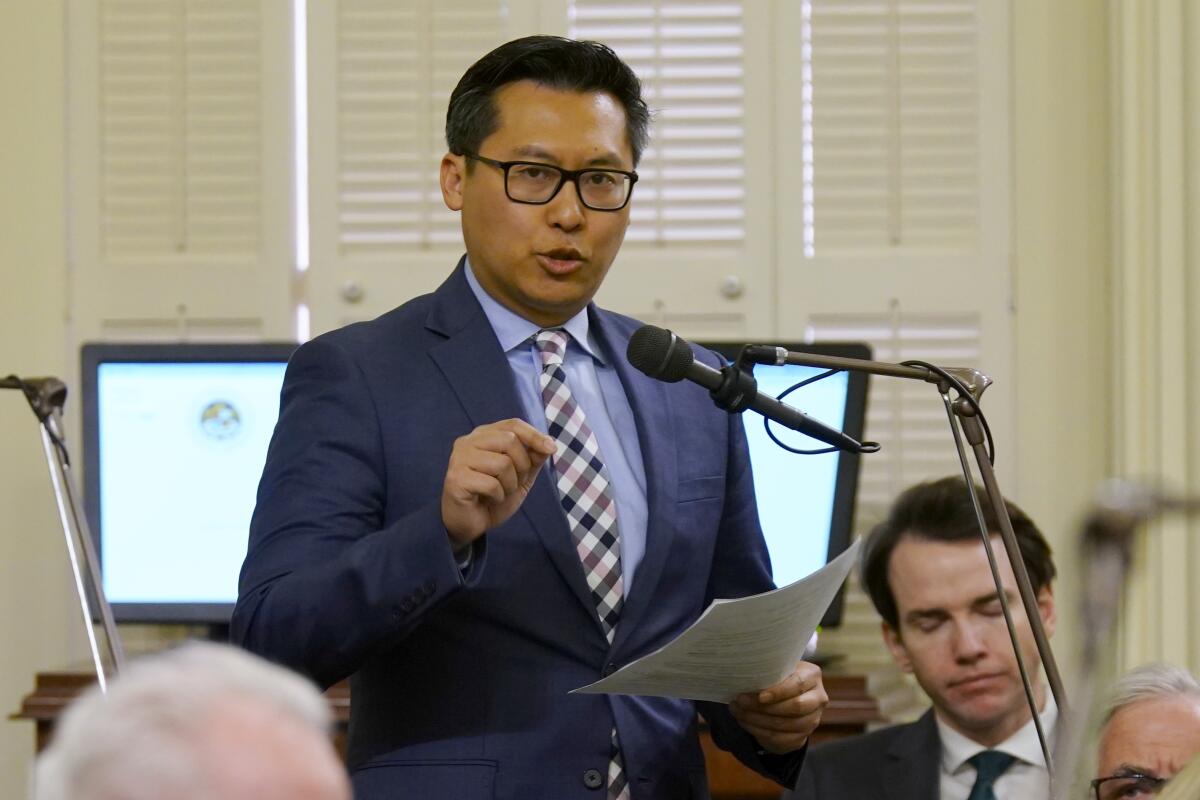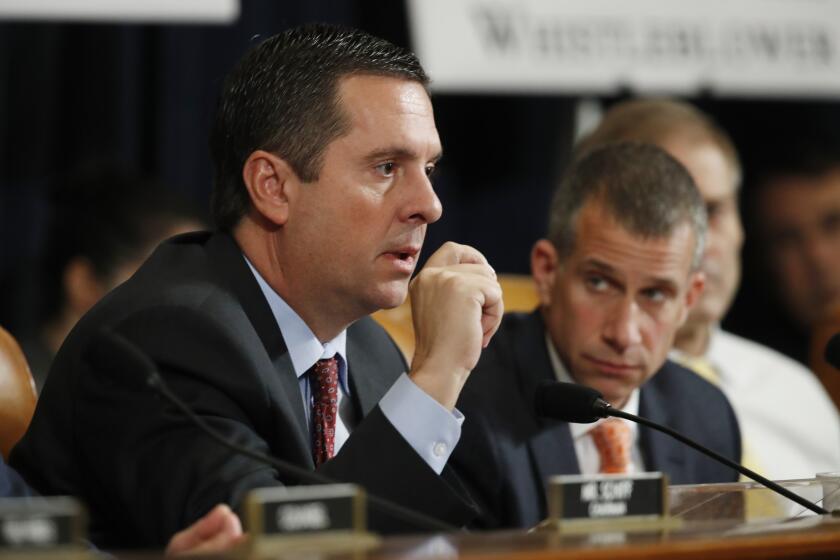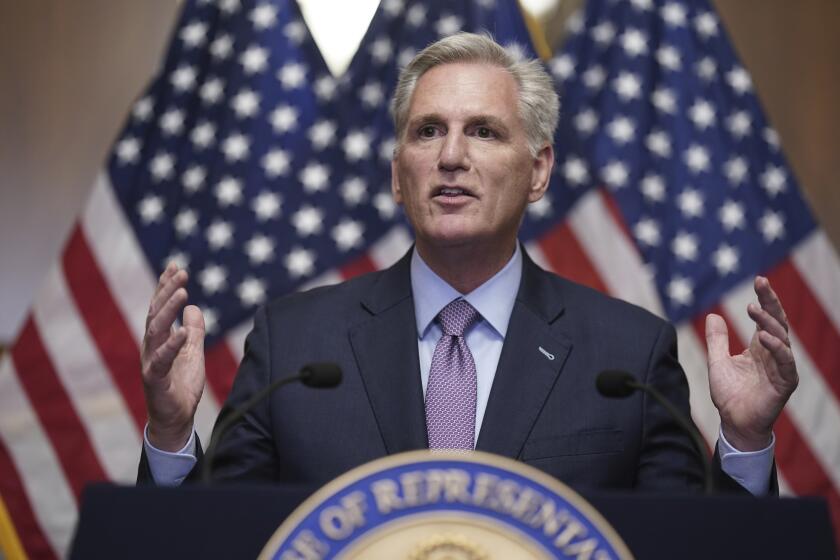Editorial: Vince Fong is allowed to run for Congress and Assembly at the same time. Time to fix the law

Itâs common sense: Political candidates shouldnât be allowed to run for two (or more) offices at the same time. But that didnât stop California Assemblymember Vince Fong from putting his name on the March primary ballot twice â first for reelection to the Assembly and then for the congressional seat recently vacated by former House Speaker Kevin McCarthy (R-Bakersfield).
Last week, a Sacramento County Superior Court judge ruled that, despite common sense, Fong can remain in both races because the state law that prohibits candidates from running for âmore than one office at the same electionâ is outdated.
With several politicians stepping down, some California voters face up to four elections next year to choose who represents them in Sacramento or D.C.
Although California Secretary of State Shirley Weber has said her office will appeal the decision, the next logical decision is for the Legislature and Gov. Gavin Newsom to update state law and make it crystal clear for future elections that candidates can run for only one office at a time.
For good reason. Allowing people to seek multiple offices at once can confuse voters and undermine confidence in the election system. A person can hold one office at a time, so if a candidate wins in more than one race, the community would go without representation until a special election can be scheduled to fill the unoccupied seat. And special elections are expensive for taxpayers and tend to have very low voter turnout, which is not ideal for a healthy democracy.
The former Republican speakerâs hasty departure leaves his voters in the Central Valley in the lurch, but apparently that doesnât matter anymore.
One candidate running for one office appeared to be settled law in California. However, in 2010, California voters changed the stateâs primary system, eliminating party nominations in favor of the top-two system in which the two leading vote-getters regardless of party compete in the November runoff.
The state did not update the language of the election code to reflect the change. Judge Shelleyanne W.L. Chang said that the law barring people from running for more than one office applies only to the old primary system, and therefore Fong is free to appear on the March 5 ballot twice.
Authoritarian rulers around the globe will attempt to use coming elections to consolidate power. But new democratic tools that empower citizens offer hope.
Still, Chang wrote, the ruling âmay result in voter confusion and the disenfranchisement of voters if Fong is ultimately elected for both offices but does not retain one.â She continued that âit somewhat defies common sense to find the law permits a candidate to run for two offices during the same electionâ but said she was compelled to interpret the law as written by the Legislature.
Assemblymember Wendy Carrillo (D-Los Angeles) said she intends to introduce a bill to clear up this mess. There may be special circumstances when a candidate could be allowed to make a last-minute change to the office he or she is running for, but no candidate should be allowed to run for two seats at once, Carrillo said in a statement. This should be a simple bipartisan fix to the election code, and the sooner lawmakers clarify the rule, the better.
Of course, this could have been avoided if McCarthy hadnât announced his resignation so late. The former speaker, who was ousted from the leadership role he coveted after just nine months in the position, announced in early December that he was stepping down at the end of the month. That left little time for candidates to make a decision to run for the now-open seat.
Fong, who once worked as McCarthyâs district director, initially declined to enter the race and instead filed to run for reelection to his 32nd Assembly District seat. Days later, after another would-be front-runner, state Sen. Shannon Grove (R-Bakersfield) bowed out, Fong changed his mind and filed papers to run for McCarthyâs 20th Congressional District seat. By that point, the deadline to withdraw from the Assembly race had passed; Fong is the only candidate on the ballot for that seat, which means he is guaranteed to win reelection.
Weber, the stateâs chief elections official, decided Fong was ineligible for the congressional race because he was already running for the Assembly. While state GOP leaders decried Fongâs removal as political, Weberâs decision was reasonable. California has little to gain from allowing a free-for-all system that lets candidates run for as many offices as theyâd like. Voters deserve common-sense election laws.
More to Read
A cure for the common opinion
Get thought-provoking perspectives with our weekly newsletter.
You may occasionally receive promotional content from the Los Angeles Times.













